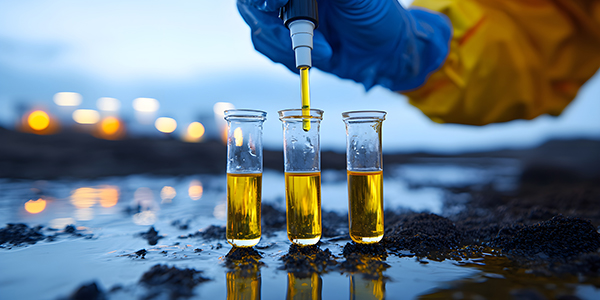
17 Feb NJDEP Updated Groundwater Quality Standards: Implications for the Environmental Consulting Industry
Reading Time: 2 minutesOn February 3, 2025, the New Jersey Department of Environmental Protection (NJDEP) adopted significant updates to the state’s Groundwater Quality Standards (GWQS), reinforcing its commitment to protecting groundwater resources and public health. These revisions introduce stricter regulatory thresholds for a wide range of contaminants, requiring businesses, municipalities, and Responsible Parties (RPs) to re-evaluate their compliance strategies. The new standards will have far-reaching consequences for industries that generate or manage hazardous substances, particularly those dealing with historical contamination, industrial discharges, and remediation projects. ESA will play a crucial role in helping stakeholders navigate these changes, ensuring that they remain compliant while mitigating environmental risks.
Key Updates to the GWQS
The revised standards lower the permissible concentration limits for multiple volatile organic compounds (VOCs), heavy metals, and emerging contaminants in Class II-A groundwater, which serves as a drinking water source. Notably, the updated criteria impose more stringent thresholds on contaminants such as:
- Benzene – Reduced to 0.45micrograms per liter (µg/L)
- Vinyl chloride – Reduced to 0.035 µg/L
- Perfluorononanoic acid (PFNA) – Now regulated at 6 parts per trillion (ppt)
- Tetrachloroethene (PCE) and Trichloroethene (TCE) – Tightened limits reflecting their classification as carcinogens
- 1,4-Dioxane – Now requiring extensive monitoring due to its persistence in groundwater
The inclusion of per- and polyfluoroalkyl substances (PFAS), dioxane, and other synthetic chemicals aligns with national efforts by the U.S. Environmental Protection Agency (EPA) to control emerging contaminants that pose long-term health risks. These changes will increase remediation obligations for responsible parties and require stricter site investigations before new developments, real estate transactions, or industrial operations involving groundwater.
Impacts on Environmental Consulting and Compliance Strategies
ESA will be at the forefront of ensuring businesses comply with the more rigorous groundwater protection measures. RPs that have already been subject to groundwater contamination investigations or remediation under New Jersey’s Site Remediation Program (SRP) will need to reassess their existing treatment plans to align with the updated standards. The major areas where environmental consultants will provide critical expertise include, but are not limited to, regulatory compliance and risk assessments, enhanced site remediation strategies, groundwater sampling & monitoring program implementation, and due diligence for property transactions and development projects.
The Path Forward for Compliance & Groundwater Protection
With these newly adopted Groundwater Quality Standards, NJDEP is sending a clear message: groundwater protection in New Jersey is evolving to address both long-standing pollutants and newly recognized chemical threats. As a result, businesses must take proactive steps to evaluate their groundwater impact, enhance treatment technologies, and comply with the latest regulatory frameworks. ESA will be instrumental in guiding these efforts, ensuring that stakeholders understand the implications of the new standards and implement effective remediation strategies.
The updated GWQS will drive more stringent regulatory enforcement, increase monitoring and remediation requirements, and create new challenges for industries with historical contamination issues. However, by staying ahead of these regulatory changes and partnering with the experienced environmental professionals at ESA, businesses can successfully navigate compliance, protect public health, and contribute to long-term groundwater sustainability in New Jersey.



